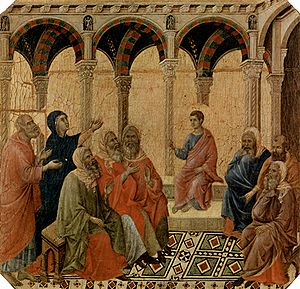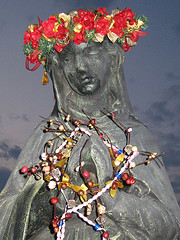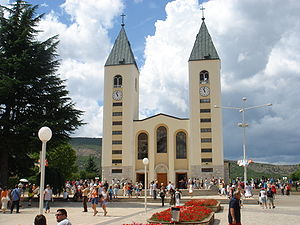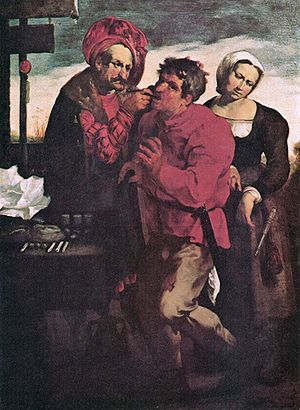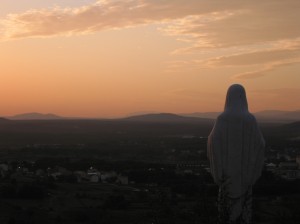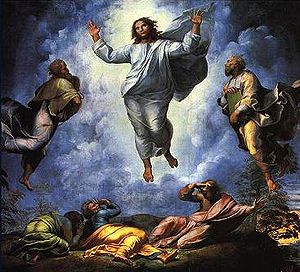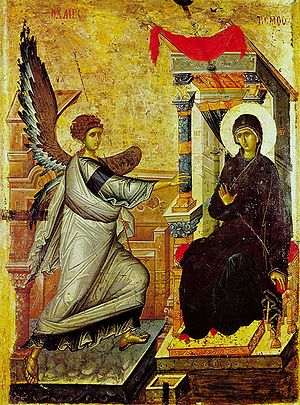Last Sunday was the feast of the Holy Family. The Gospel reading was the Fifth Joyful Mystery about finding Jesus in the temple. I wrote a rosary meditation on this mystery earlier, but I had another thought as I was listening to the Gospel at Mass that I wanted to share.
In Luke’s Gospel, after finding Jesus in the temple, Jesus said that He had to be in His Father’s house. The Gospel then says that Mary and Joseph, “did not grasp what He said to them” (Luke 2:50). I have a hard time understanding why Mary and Joseph were so confused by Jesus’ words. After all, He was immaculately conceived. An angel came to Mary saying that she was going to be the mother of God. Choirs of angels sang at His birth. Three wise men sought him out and gave Him gifts of gold, frankincense, and myrrh. Those aren’t events that just happen to any regular human being. So why were Mary and Joseph so confused despite the fact that they understood that Jesus was God made man?
I now realize that Mary and Joseph’s confusion is no different, in some respects, to our confusion of Jesus’ message today. How many times does Jesus speak to us through the Mass, prayer, the Bible, and the teachings of the Church? He may not physically appear to us, but that does not diminish His message of love, peace, and faith. And yet, we still do not understand His teachings and struggle to live according to His will. We still fall into temptation and sin. We still choose to live for this earthly world and not His kingdom. We even have the advantage of knowing of His crucifixion, resurrection, and ascension into Heaven and yet our actions reflect a confusion and sometimes a total lack of understanding of Jesus’ teachings. So when the Gospel writers talk of Mary’s confusion of Jesus’ words, perhaps they are commenting more on our human condition of not understanding Jesus’ nature.
As we enter a new decade may we make a resolution to better understand Jesus’ teachings. Let us also resolve to live and treat each other as Jesus tells us. May we have the courage to let the Holy Spirit lead us through life’s difficult situations. As Mary asks us repeatedly, may we make room in our hearts for Jesus through prayer, meditation, and fasting. Finally, may this be a new decade of decades (rosary decades that is) as we resolve to pray the rosary more than ever. Happy 2010 everyone!
Related articles by Zemanta
- Evening Prayer For Feast Of The Holy Family (cehwiedel.com)


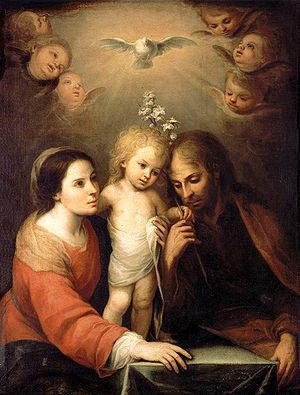
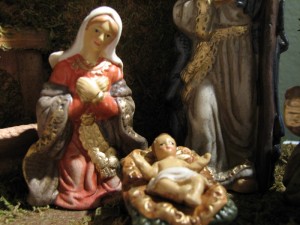
![Reblog this post [with Zemanta]](http://img.zemanta.com/reblog_e.png?x-id=afb14377-e09a-4b40-bab3-94deb1c47901)
